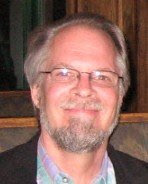 I had the good fortune recently to hear eminent theologian Dr. Hans Küng present the principles of the newly launched manifesto titled "Global Economic Ethic - Consequences for Global Businesses" at the Parliament of the World's Religions. Küng has been a champion of global ethics work for decades and was the principal author of the Declaration Toward a Global Ethic statement developed at the 1993 Parliament. The Global Economic Ethic grows out of that work and is also a response to the recent economic collapse.
I had the good fortune recently to hear eminent theologian Dr. Hans Küng present the principles of the newly launched manifesto titled "Global Economic Ethic - Consequences for Global Businesses" at the Parliament of the World's Religions. Küng has been a champion of global ethics work for decades and was the principal author of the Declaration Toward a Global Ethic statement developed at the 1993 Parliament. The Global Economic Ethic grows out of that work and is also a response to the recent economic collapse.Küng argues that the recent collapse resulted from three related failures: the failure of markets to correct their own problems, the failure of institutions to perform their duties, and a widespread failure of morals. This shocking set of failures demonstrates the need for ethical guidelines in the economic world; to a great extent the crisis was caused by a failure of ethics.
We do not need to invent these ethical guidelines, according to Küng. They already exist in the great religious and cultural traditions of the world. In their simplest form, these principles boil down to two overarching imperatives: the principle of humanity, that every person must be treated humanely, and the principle of reciprocity, also known as the Golden Rule. (Take a look at my earlier post to read about Karen Armstrong's Charter for Compassion based on the Golden Rule.)
Based on these two foundational principles and the 1993 Declaration Toward a Global Ethic, Küng argues that all economic activity needs to abide by four practical core standards:
1) Respect and support of human rights
2) Fair and responsible labor standards
3) Protection of the environment
4) Working against corruption in all its forms
These are principles that can be adopted by all people and nations, whether religious or not. Dr. Küng emphasized that globalization requires a global ethic. There is hope that because of the recent failure of economic systems, the door may actually be open for these ideas to be taken seriously. The failure of ethics has now been shown to have far-reaching and disastrous results. The full text of the declaration can be found at www.globaleconomicethic.org.
In his response to Küng's presentation, Dr. Dipak Jain, professor and former dean of the Kellogg School of Management at Northwestern University, called for a new definition of sustainable capitalism: profits + people + planet. Dr. Katherine Marshall of Georgetown University raised the idea of a "greed line" (to parallel the poverty line), a level of wealth above which no one needs to rise. Attendees smiled at this idea, although we did not think it likely to be implemented.
These proposals, along with Karen Armstrong's Charter for Compassion and Rabbi Michael Lerner's call for a new bottom line (new post on this soon), show that there is palpable interest in the air for a rebirth of ethical commitment in the economic world. It is has become clear that greed, corruption, and regulatory failure do not work, not even for the affluent. Perhaps what really works after all are the age-old values of honesty, fairness, truthfulness, justice, and human rights. What a refreshing idea! Do you think it could possibly work?
















